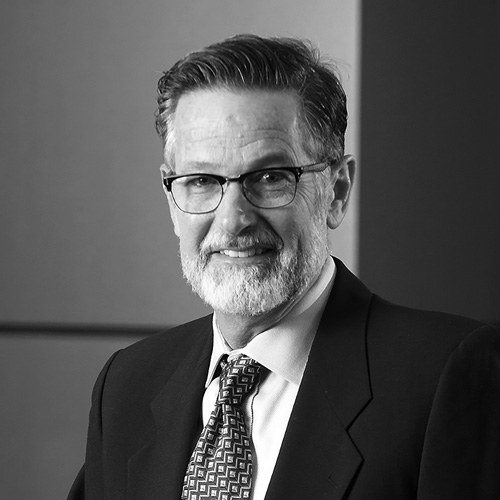Every year, about 10,000 infants and toddlers in the United States are diagnosed with cerebral palsy, the country’s most common motor disability. Once a patient is diagnosed, the treatment for the disease lasts a lifetime—lives that can range anywhere between rich and full or heavily isolated.
Amy Simons, chief development officer at United Cerebral Palsy of Los Angeles, Ventura, and Santa Barbara Counties (UCPLA), is raising funds for programs that can make all the difference in the lives of individuals with cerebral palsy, autism, Down syndrome, and other developmental disabilities.
That’s no small challenge. “Last year, the state budget did not include any additional funding for community-based organizations,” Simons says of the governing decision in California, which left a $2 million shortfall in their program costs. With requests for services increasing and available funding decreasing, UCPLA is strategically aligning itself with like-minded organizations to make sure the voices of those with developmental disabilities are heard in the legislature.
“These individuals can’t be stuck with where funding was fifteen years ago,” Simons says. Since mid-2011, 435 residential homes for adults with developmental disabilities closed. That’s equal to 2,300 beds. In addition, fifty-seven adult day and vocational programs closed (leaving 1,200 adults with developmental disabilities without program support), as did fifteen job programs. These programs that UCPLA provides help the cerebral-palsy population become more visible, contributing members of society, and without them, this progress could be stunted.
UCPLA FACTS AND FIGURES
40
programs in five counties
11k
people served every day
600+
people employed
For example, the art program equips students with accessible brushes for those who don’t have enough dexterity in their hands to hold a brush, allowing them to use their feet. Those interested in digital media can use computers with adaptive touch screens and special computer mice that are embedded within the headrest of their wheelchairs.
In 2011, the art program expanded to include the Washington Reid Gallery in the heart of the Culver City Arts District as a place for artists to exhibit and sell their work. The gallery puts on several shows a year where the participants are recognized as artists first, rather than someone with a developmental or intellectual disability.
“The community response has been amazing,” Simons says. “There are art patrons that now follow our artists and collect their work. It’s been a huge success for the artists in terms of finding inclusion into the community and creating income to sustain the program.”
Some people with intellectual disabilities may have difficulty verbalizing, “but they have a lot to say,” Simons emphasizes. The Writers Guild program gives participants a chance to use their voices by fostering their communication through narrative and the written word.
Some program participants are working on comics, mystery novels, or children’s books. One man wrote a memoir about his experience in the educational system with a developmental disability. The man, who is unable to use conventional speech, found that his disability did not affect his intellect. UCPLA is looking to publish his work in order to “challenge the assumption that if you can’t speak, nothing is going on in your head,” Simons says. “That’s not the case.”
With each of its programs, UCPLA sets the same goal: allow individuals to lead engaging lives as members of the community. The driving force behind programs like these is California’s Lanterman Disabilities Act, passed in 1969. The act stipulates that any person with an intellectual or developmental disability in the state is entitled to services and treatment for their entire life, starting at diagnosis. Additionally, the creation of community-based programs over state hospital programs has made one of the most critical impacts of the act.
“The Lanterman Act was the product of families who didn’t want to put their loved one away in a hospital,” Simons explains. “It allows for the inclusion of people with disabilities as members of the community, at home with their families, or in community residences, rather than people that we need to put somewhere.”
UCPLA also seeks to support families who have elected home caregiving as an alternative to hospital care through its unique RESPITALITY program. Parents of children with special needs can take a weekend getaway to relax, rejuvenate, and reconnect while their children are cared for at home. UCPLA works with the family to identify the right person to stay in the home with the children, with options that include the use of UCPLA direct-care staff members when viable.
The organization, in partnership with local hotels, donates a two-night stay so that the family can take a weekend away at no cost. “That weekend away allows families to go back refreshed and continue to do the amazing work of caregiving,” Simons says of the program, funded entirely through UCPLA.
Simons and UCPLA are fighting for increased government support through advocacy to increase the visibility of the audience they serve, striving to catch the attention of its local governmental representatives. “One of our day programs is a polling place,” Simons says. “We want to get the point across that we are part of this community.”
One potentially rich source of advocacy for the UCPLA community, Simons believes, is the millennial generation. “Millennials look at their priorities and how they choose to spend [their] money differently,” she says, explaining that the next generation is more likely to be accepting and positive about differences than the prior one. To harness its energy and support, UCPLA’s board has created a junior board for people 18–35 years old to cultivate the next generation of disability advocates.
Simons’s team has also tapped into the energy and creativity of local college students with a four-week fitness and awareness campaign called “Out and About with UCPLA” that pairs activity goals with fundraising. They also worked with a high-school group who put on a coffeehouse event and raised $8,000 for accessible wheelchairs that allow the user to navigate down to the beach.
UCPLA’s ultimate goal is simple in language, but not in scope: to enable those with developmental disabilities to live lives filled with individual successes and achievements. “We serve true lifelong learners,” Simons says. “The ability for them to go through their entire lifespan, constantly learning and challenging themselves, is inspirational.”


